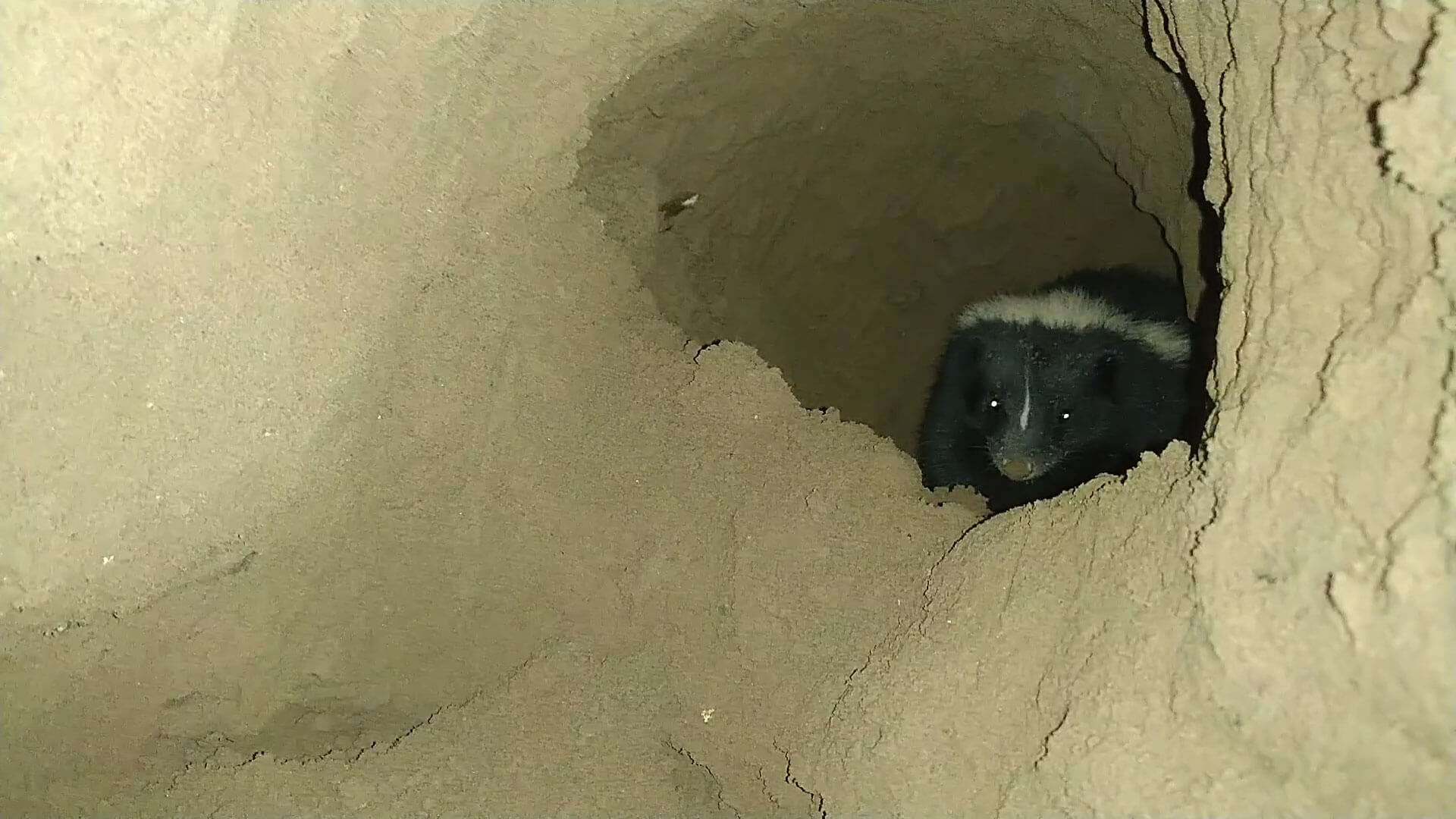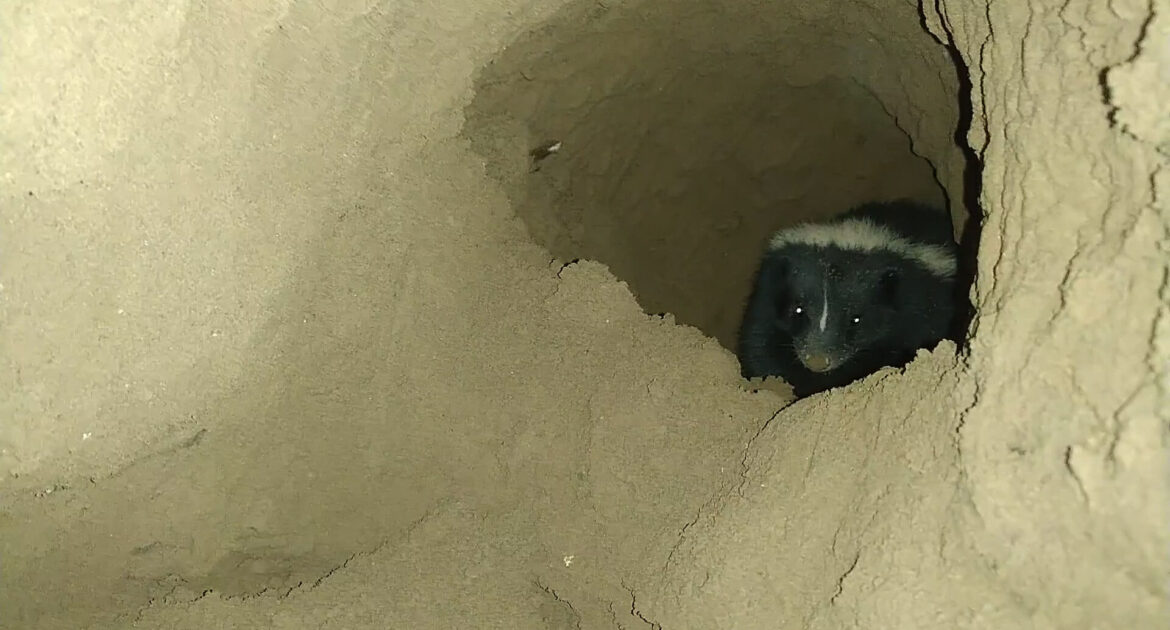Skunks are unique and adorable-looking animals, but you do not want to get too close. The animal’s defense mechanism is one of the stinkiest in the entire animal kingdom. Unfortunately, the distinctively striped critters love making homes in gardens, according to skunk removal experts.
When a skunk becomes accustomed to a landscape, it can become reckless and destructive. It is important for homeowners to find ways to deter the animal or seek professional assistance from wildlife control services in Madison. If they do not, it won’t be long before your yard is full of holes and other debris.
Why Do Skunks Dig?
Skunks love to dig. The animal has two primary reasons for digging: food and shelter. When searching for food, a skunk will pull away from the top layer of grass, looking for grubs and insects just below the surface. A big problem occurs when a family of skunks is feeding in the same yard. You will notice significant patchiness over a single night.
If a skunk is seeking shelter, it will burrow. It may dig a large hole behind bushes or yard debris. The animal might also nest under structures, such as decks or sheds.
Why It’s Important To Keep Your Distance?
While a skunk is cute, it is still a wild animal. Wildlife is unpredictable. With one of the smelliest defenses and deterrents in the animal kingdom, it is crucial to keep your distance. A skunk can spray up to 15 feet. Additionally, skunks can carry and transmit bacteria and viruses.
Aside from protecting yourself, ensure you protect your animals by keeping them indoors at night. Dogs and cats can be especially vulnerable to skunk spray, especially if they ingest it.
Can You Prove a Skunk Is The Culprit?
You cannot automatically assume a skunk is the cause of damage to your yard. There are other nocturnal animals that can dig up the lawn, including raccoons, possums, etc.
However, there are a couple of ways to tell if a skunk is the cause of the damage. First, if a skunk sprays your yard to claim it, you cannot miss the distinctive odor. Second, you can check the dirt or mud for tracks and compare those to known animal tracks.
How Do You Encourage a Skunk To Move On?
If you know a skunk is in your yard and damaging it, you can use humane harassment to encourage it to leave. One method for humane harassment is to use noise; however, it must be specific noise.
Skunks do not like people and will try to avoid them at any cost, like most wildlife. Therefore, you can place a radio in your yard tuned to a talk radio station. Leave the radio on all night. The volume does not have to be loud; it can be at a conversation level.
You can also use light. Skunks try to avoid bright lights for safety. If you want a skunk to leave your yard, you can install motion-activated lights around the perimeter.
How Can You Prevent Skunks in the First Place?
If you want to maintain a skunk-free yard, there are several things you can do. First, you can install a perimeter fence. Make sure the fence goes all the way to the ground. If possible, install a concrete or wire mesh barrier under the fence to prevent digging.
Second, maintain a manicured lawn. Keep your grass cut short, and refrain from feeding pets outside. Also, if you keep bird feeders, make sure to clean up the ground under them as a routine.
Finally, store trash in sealed trash containers. It would be best to keep the containers indoors, such as in a garage or shed. Skunks are foragers, so garbage can be an excellent food source.
Do you have a skunk problem? If so, look no further than wildlife control in Madison. Contact Skedaddle Humane Wildlife Control and schedule a property assessment.




